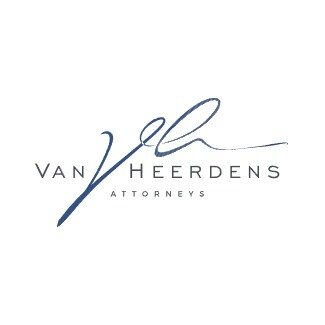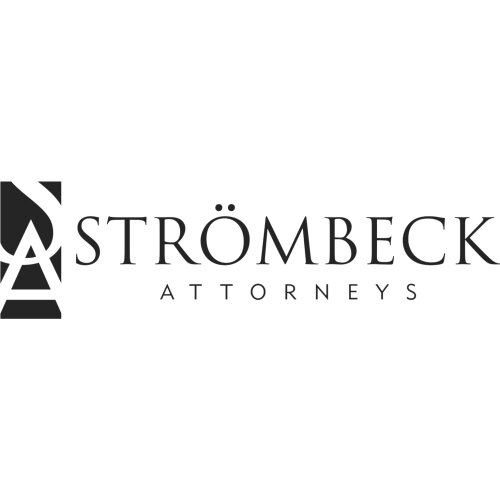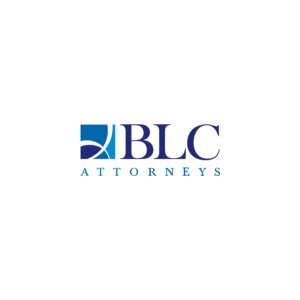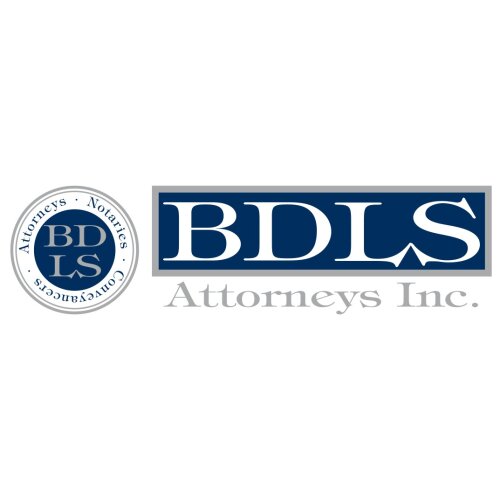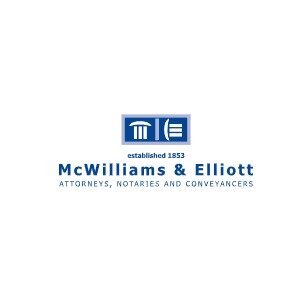Best Conveyancing Lawyers in Port Elizabeth
Share your needs with us, get contacted by law firms.
Free. Takes 2 min.
Free Guide to Hiring a Real Estate Lawyer
List of the best lawyers in Port Elizabeth, South Africa
About Conveyancing Law in Port Elizabeth, South Africa
Conveyancing is the legal process of transferring property ownership from one person to another. In Port Elizabeth, South Africa, this field of law is essential for anyone buying, selling, or dealing with immovable property. The conveyancing process ensures that the buyer obtains good and marketable title to the property and that the transaction complies with all legislative and regulatory requirements. Qualified conveyancers - who are attorneys with a further legal qualification in conveyancing - are the only professionals permitted to handle these transactions to ensure legality, accuracy, and protection of all parties' interests.
Why You May Need a Lawyer
Many situations can arise where you may require legal help with conveyancing in Port Elizabeth. You may be purchasing a new home, an investment property, or selling land. Other instances include inheriting property, subdividing or consolidating land, registering a bond, or transferring property as part of divorce, deceased estates, or gifting. Conveyancing lawyers guide clients through often complex and time-consuming transactions. They minimise risk, ensure compliance with local regulations, and safeguard your interests by preparing, reviewing, and lodging all necessary documents with the Deeds Registry and other relevant authorities.
Local Laws Overview
Conveyancing in Port Elizabeth is subject to national legislation but is intertwined with local Land Use Management Schemes and municipal by-laws. The most relevant legal framework includes the Deeds Registries Act and the Sectional Titles Act. The conveyancer must perform due diligence by conducting Deeds Office searches, checking for municipal compliance with rates and taxes, and verifying zoning and use permissions. Port Elizabeth also falls under the jurisdiction of the Nelson Mandela Bay Municipality, which may have specific requirements around land usage, building control, and property rates. Transfer duty or VAT may be payable, and all municipal accounts must be settled before transfer can proceed. Only admitted attorneys with conveyancing qualifications are permitted to draft transfer documents and lodge them for registration.
Frequently Asked Questions
What does a conveyancer do in the property transfer process?
A conveyancer manages the legal transfer of property. This includes preparing all legal documents, liaising with buyers, sellers, banks, and municipal authorities, ensuring all compliance certificates and payments are in order, and ultimately registering the property in the new owner's name at the Deeds Office.
How long does the conveyancing process take in Port Elizabeth?
On average, the process takes between eight and twelve weeks, but this can vary depending on factors like bond approvals, compliance certificate issuance, and municipal clearance. Delays are possible if there are legal disputes or outstanding municipal debts.
Who chooses the conveyancer, the buyer or the seller?
Typically, the seller nominates the conveyancer, but this can be negotiated. All parties should agree on an attorney who is experienced in conveyancing in the Port Elizabeth area.
What are typical costs involved in conveyancing?
Costs include the conveyancer's professional fees (which may be determined by tariff), Deeds Office registration fees, transfer duty or VAT, bond registration fees, and municipal clearance costs. Fees can vary based on the value of the property and the complexity of the transaction.
What documents are needed to transfer property?
Commonly required documents include the original title deed, clearance certificates for rates and utilities, the sale agreement, identity documents from both parties, and bond cancellation or approval documents if applicable.
Can I do the conveyancing myself without a lawyer?
No, South African law requires that only qualified and admitted conveyancers may attend to the registration of transfers and bonds at the Deeds Office.
What is a transfer duty and when is it payable?
Transfer duty is a tax payable to the South African Revenue Service (SARS) on the transfer of property. It is generally paid by the buyer prior to the transfer being registered unless the transaction attracts VAT instead.
When do I pay the conveyancing fees?
Fees are usually paid at the start of the process, once the conveyancer has been instructed, as they cover upfront costs such as Deeds Office searches, obtaining certificates, and conducting due diligence.
Do all property sales go through the Deeds Office?
Yes, every property transfer in Port Elizabeth and throughout South Africa must be registered at the Deeds Office to be legally effective.
What happens if there are disputes or problems during conveyancing?
If disputes arise, the conveyancer will attempt to resolve them as an intermediary. However, unresolved disputes may require formal mediation, arbitration, or litigation in court.
Additional Resources
If you require more information or assistance, consider the following resources:
- Deeds Office, Port Elizabeth - Manages property registration and title deeds
- South African Law Society - Regulates conveyancers and ensures professional standards
- Nelson Mandela Bay Municipality - Source for municipal rates, clearance certificates, and local planning regulations
- South African Revenue Service (SARS) - For information on transfer duty and property taxes
- Attorneys and conveyancers operating in Port Elizabeth - For specialised local legal advice
Next Steps
If you are buying, selling, or otherwise dealing with property in Port Elizabeth, it is essential to consult with a qualified conveyancing attorney as early as possible. Start by identifying a reputable law firm that specialises in conveyancing. Gather all necessary documents, such as identity documents, proof of address, and information relating to the property. Clearly communicate your objectives to your conveyancer and inquire about the anticipated timeline, required fees, and procedural steps. Rely on their expertise to guide you through to the successful completion of your property transaction.
Lawzana helps you find the best lawyers and law firms in Port Elizabeth through a curated and pre-screened list of qualified legal professionals. Our platform offers rankings and detailed profiles of attorneys and law firms, allowing you to compare based on practice areas, including Conveyancing, experience, and client feedback.
Each profile includes a description of the firm's areas of practice, client reviews, team members and partners, year of establishment, spoken languages, office locations, contact information, social media presence, and any published articles or resources. Most firms on our platform speak English and are experienced in both local and international legal matters.
Get a quote from top-rated law firms in Port Elizabeth, South Africa — quickly, securely, and without unnecessary hassle.
Disclaimer:
The information provided on this page is for general informational purposes only and does not constitute legal advice. While we strive to ensure the accuracy and relevance of the content, legal information may change over time, and interpretations of the law can vary. You should always consult with a qualified legal professional for advice specific to your situation.
We disclaim all liability for actions taken or not taken based on the content of this page. If you believe any information is incorrect or outdated, please contact us, and we will review and update it where appropriate.



